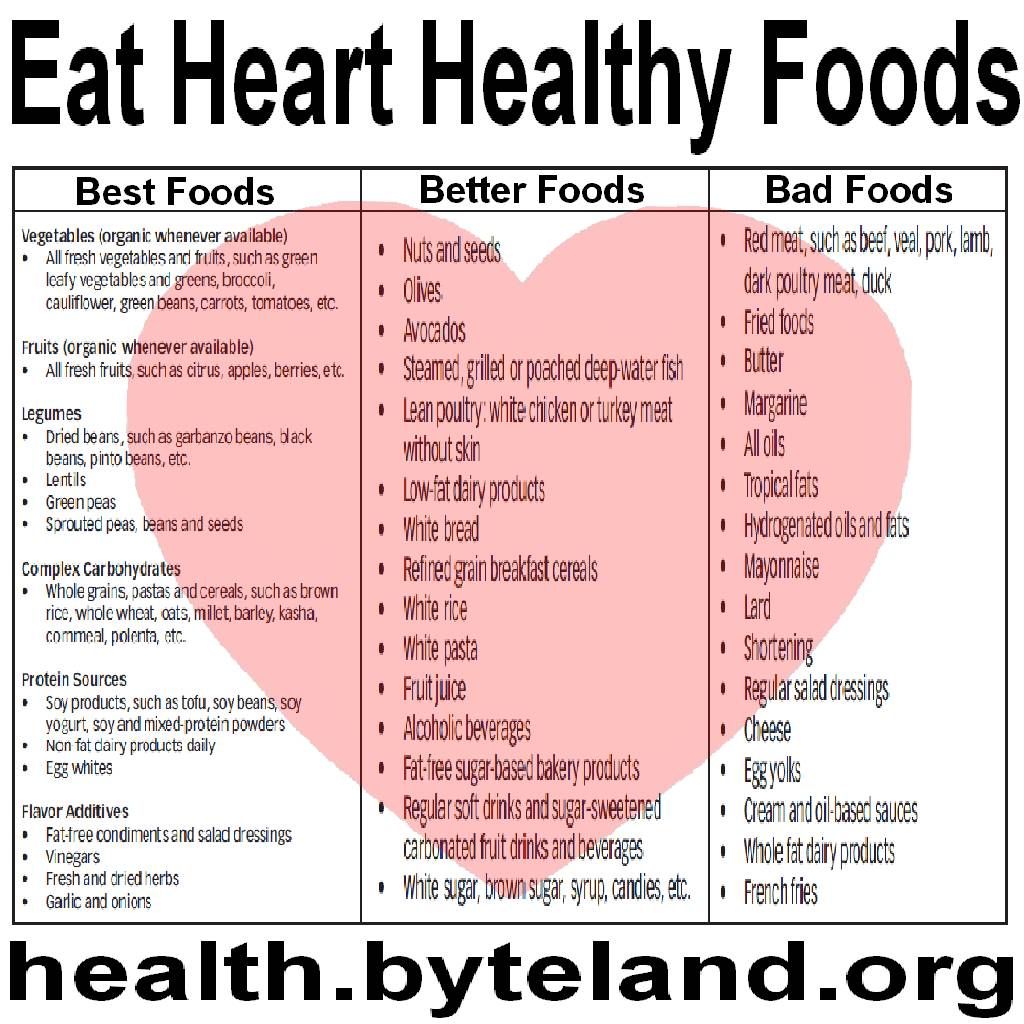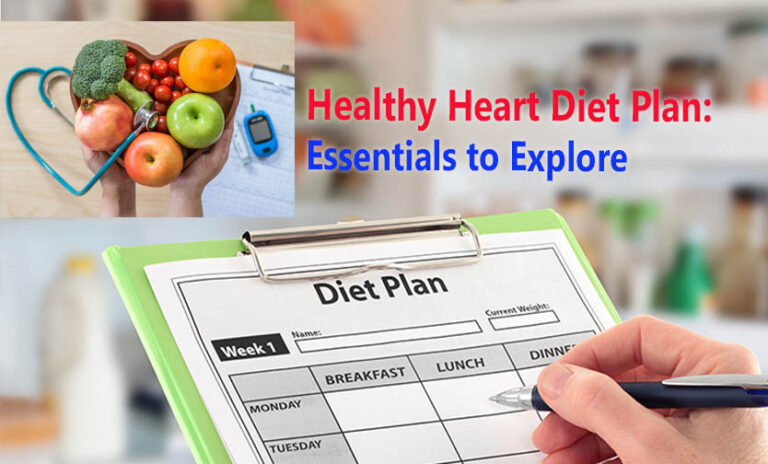Top nutrition plans for heart health: A Comprehensive Guide

Embark on a journey through the realm of top nutrition plans for heart health, where the significance of dietary choices intertwines with the well-being of your heart. Delve into the depths of effective nutrition strategies that can safeguard your heart against disease and nurture its vitality.
As we navigate through various nutrition plans tailored for heart health, we uncover the essence of a wholesome diet that serves as a cornerstone for a robust cardiovascular system.
Overview of Top Nutrition Plans for Heart Health

Proper nutrition plays a crucial role in maintaining heart health and reducing the risk of heart disease. A heart-healthy nutrition plan consists of key components that help in managing various risk factors associated with heart disease.
Key Components of an Effective Heart-Healthy Nutrition Plan
- Emphasis on fruits and vegetables: These are rich in vitamins, minerals, and antioxidants that support heart health.
- Healthy fats: Including sources of monounsaturated and polyunsaturated fats like nuts, seeds, and olive oil can help lower cholesterol levels.
- Whole grains: Choosing whole grains over refined grains can improve heart health by providing fiber and important nutrients.
- Lean proteins: Opting for lean protein sources such as fish, poultry, and legumes can reduce the intake of saturated fats.
- Limited salt intake: Lowering salt consumption can help manage blood pressure levels, reducing the risk of heart disease.
Impact of Nutrition on Heart Disease Risk Factors
Nutrition plays a significant role in influencing various risk factors associated with heart disease. A heart-healthy diet can help in lowering cholesterol levels, managing blood pressure, reducing inflammation, and maintaining a healthy weight. By incorporating nutrient-dense foods and making mindful choices, individuals can support their heart health and overall well-being.
Mediterranean Diet

The Mediterranean diet is a heart-healthy eating plan inspired by the traditional dietary patterns of countries bordering the Mediterranean Sea. It is known for its numerous health benefits, especially in promoting heart health and reducing the risk of cardiovascular diseases.
Benefits of the Mediterranean Diet for Heart Health
- Rich in heart-healthy fats: The Mediterranean diet emphasizes the consumption of olive oil, nuts, and fish, which are sources of monounsaturated and omega-3 fats that have been linked to lower risk of heart disease.
- High in fruits and vegetables: These food groups are packed with vitamins, minerals, and antioxidants that help reduce inflammation and improve heart health.
- Whole grains and legumes: These provide fiber, which can help lower cholesterol levels and improve heart health.
- Moderate consumption of lean proteins: The Mediterranean diet includes poultry, eggs, and dairy products in moderation, focusing more on plant-based proteins like legumes and nuts.
- Red wine in moderation: Red wine, consumed in moderation, has been associated with heart health benefits due to its antioxidant content.
Examples of Foods in the Mediterranean Diet
- Olives and olive oil
- Fruits like grapes, apples, and oranges
- Vegetables such as tomatoes, cucumbers, and spinach
- Fish like salmon, sardines, and tuna
- Nuts and seeds
- Whole grains like quinoa, brown rice, and whole wheat bread
- Legumes such as chickpeas, lentils, and beans
- Herbs and spices like garlic, basil, and oregano
Comparison with Other Nutrition Plans for Heart Health
The Mediterranean diet stands out among other popular nutrition plans for heart health due to its emphasis on whole, minimally processed foods, and the inclusion of healthy fats like olive oil and nuts. It also allows for moderate consumption of red wine, which is unique compared to other diets.
Overall, the Mediterranean diet has been extensively studied and proven to be effective in reducing the risk of heart disease and promoting overall cardiovascular health.
DASH Diet
The DASH (Dietary Approaches to Stop Hypertension) diet is a well-known eating plan that is specifically designed to help lower blood pressure and improve overall heart health. It focuses on consuming nutrient-rich foods that are low in saturated fats, cholesterol, and sodium.
Recommended Daily Servings in the DASH Diet
The DASH diet emphasizes the following daily servings:
- Vegetables: 4-5 servings per day
- Fruits: 4-5 servings per day
- Grains: 6-8 servings per day
- Lean protein sources: 2 or fewer servings per day
- Dairy: 2-3 servings per day
- Nuts, seeds, and legumes: 4-5 servings per week
- Fats and oils: 2-3 servings per day
Effectiveness of the DASH Diet
The DASH diet has been proven to be effective in lowering blood pressure and cholesterol levels. By focusing on whole foods rich in nutrients and fiber, while limiting processed foods high in sodium and saturated fats, the DASH diet can help reduce the risk of heart disease and other cardiovascular issues.
Additionally, the emphasis on fruits and vegetables in the diet provides antioxidants and other beneficial compounds that support heart health.
Plant-Based Diet
Eating a plant-based diet can have numerous benefits for heart health. This type of diet is rich in fiber, vitamins, minerals, and antioxidants, while being low in saturated fats and cholesterol. As a result, it can help lower blood pressure, reduce inflammation, improve cholesterol levels, and support overall heart function.
Key Plant-Based Foods for Heart Health
- Leafy greens: Spinach, kale, and Swiss chard are packed with nutrients like potassium, magnesium, and calcium that support heart health.
- Berries: Blueberries, strawberries, and raspberries are high in antioxidants that help reduce inflammation and oxidative stress in the body.
- Legumes: Beans, lentils, and chickpeas are great sources of protein, fiber, and potassium, which can benefit heart health by lowering cholesterol levels.
- Nuts and seeds: Almonds, walnuts, flaxseeds, and chia seeds provide healthy fats, fiber, and plant-based protein that can help reduce the risk of heart disease.
- Whole grains: Quinoa, brown rice, oats, and whole wheat products offer fiber, vitamins, and minerals that support heart health and lower the risk of cardiovascular issues.
Impact of Plant-Based Diet on Heart Disease Prevention
Studies have shown that adopting a plant-based diet can have a significant impact on heart disease prevention. Research has indicated that individuals following a plant-based diet have lower rates of cardiovascular disease, reduced risk of heart attacks, and improved overall heart health markers.
Success stories of individuals who have switched to a plant-based diet often report lower cholesterol levels, improved blood pressure, and better heart function.
Low-Sodium Diet
Managing heart health often involves paying attention to sodium intake. A low-sodium diet is crucial in maintaining healthy blood pressure levels and reducing the risk of heart disease.
Importance of a Low-Sodium Diet
Excessive sodium consumption can lead to high blood pressure, which is a major risk factor for heart disease. By reducing sodium intake, you can help control blood pressure and protect your heart health.
Tips for Reducing Sodium Intake
- Avoid processed and packaged foods, as they tend to be high in sodium.
- Read food labels and choose low-sodium or sodium-free options when possible.
- Use herbs, spices, and citrus juices to flavor your food instead of salt.
- Rinse canned foods like beans and vegetables to reduce their sodium content.
Relationship Between High Sodium Consumption and Heart Disease
High sodium intake can lead to increased blood pressure, which puts strain on the heart and blood vessels. Over time, this can contribute to the development of heart disease, stroke, and other cardiovascular conditions. By adopting a low-sodium diet, you can help protect your heart and improve your overall health.
Last Point

In conclusion, the exploration of top nutrition plans for heart health sheds light on the pivotal role of dietary habits in fostering a healthy heart. By embracing these nutrition strategies, you pave the way towards a vibrant life brimming with vitality and well-being.
FAQ Resource
What are the key components of an effective heart-healthy nutrition plan?
An effective heart-healthy nutrition plan typically includes a balance of fruits, vegetables, whole grains, lean proteins, and healthy fats to support heart function.
How does the DASH diet help in lowering blood pressure and cholesterol levels?
The DASH diet emphasizes consuming foods rich in potassium, calcium, magnesium, and fiber, which are beneficial for reducing blood pressure and cholesterol levels.
Why is reducing sodium intake important for managing heart health?
Reducing sodium intake is crucial for managing heart health as high sodium consumption can contribute to increased blood pressure, putting strain on the heart.




